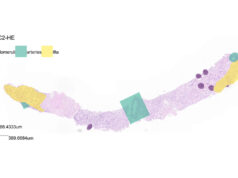Transplant centres “should be aware” of the cognitive risks associated with post-kidney transplant delirium and should also implement available preventative interventions to reduce delirium risk. This is the concluding message of a study published recently in the American Journal of Transplantation (AJT), which found a more-than sevenfold greater risk of dementia in kidney transplant recipients with post-transplant delirium.
The study’s authors, Mara McAdams-DeMarco (NYU Langone Health/New York University, New York, USA), Nadia Chu (Johns Hopkins University School of Medicine, Baltimore, USA) and colleagues, note at the outset that kidney transplant recipients with delirium—a preventable surgical complication—are likely to reap cognitive benefits from restored kidney function, but may be more vulnerable to longer-term neurotoxic stressors post-transplantation (i.e. ageing and immunosuppression).
The researchers therefore devised a prospective cohort study to further elucidate these risks. Between 2009 and 2021, they measured delirium (chart-based), global cognitive function (3MS [modified mini-mental state]), and executive function (trail making test [TMT] part B minus part A), in 894 kidney transplant recipients at the following timepoints:
- At kidney transplantation
- One, three or six months after transplantation
- One year after transplantation
- Annually post-transplantation
In addition, dementia was ascertained using linked Medicare claims, McAdams-DeMarco, Chu et al report, and the researchers also repeated measures of cognitive performance (mixed-effects model) and quantified dementia risk (Fine-Gray competing risk model) by post-kidney transplant delirium.
Of the 894 kidney transplant recipients included in their analysis, 43 (4.8%) had post-transplant delirium. Delirium was not associated with global cognitive function at kidney transplantation (difference of −3.2 points, 95% confidence interval [CI]: −6.7 to 0.4) or trajectories post-kidney transplantation (0.03 points/month, 95% CI: −0.27 to 0.33), the authors note.
However, McAdams-DeMarco, Chu et al did find that delirium was associated with a worse executive function at kidney transplantation (55.1 seconds, 95% CI: 25.6 to 84.5), greater improvements in executive function in the first two years post-transplantation (−2.73 seconds/month, 95% CI: −4.46 to −0.99), and a greater decline in executive function after two years post-transplantation (1.72 seconds/month, 95% CI: 0.22 to 3.21).
In addition, post-kidney transplant delirium was found to be associated with a more-than sevenfold greater risk of developing dementia post-transplantation (adjusted subdistribution hazard ratio=7.84, 95% CI: 1.22 to 50.4). Based on this finding, and their results regarding executive function, the researchers conclude their AJT paper by asserting that “transplant centres should be aware of cognitive risks associated with post-KT [kidney transplant] delirium and implement available preventative interventions to reduce delirium risk”.











